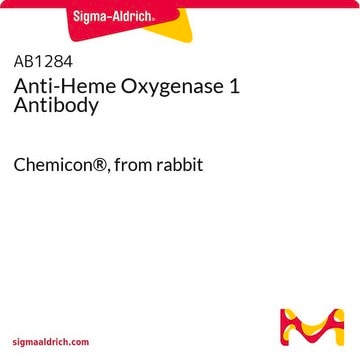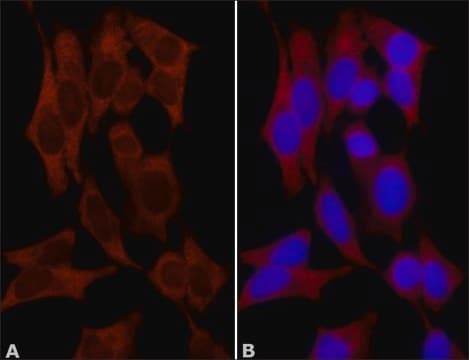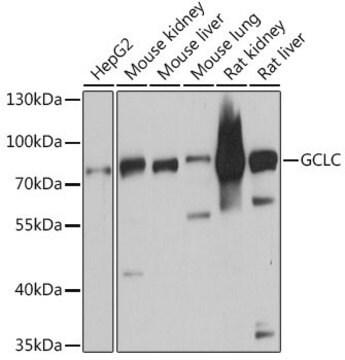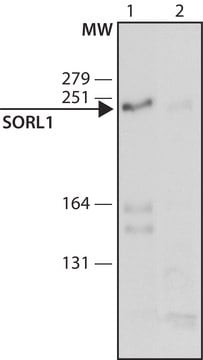ABE413
Anti-NF-E2-related factor 2 Antibody
from rabbit, purified by affinity chromatography
Synonym(s):
Nuclear factor erythroid 2-related factor 2, NF-E2-related factor 2, NFE2-related factor 2, HEBP1, Nuclear factor erythroid derived 2-like 2
About This Item
Recommended Products
biological source
rabbit
Quality Level
antibody form
affinity isolated antibody
antibody product type
primary antibodies
clone
polyclonal
purified by
affinity chromatography
species reactivity
human
species reactivity (predicted by homology)
mouse (based on 100% sequence homology), chimpanzee (based on 100% sequence homology), rhesus macaque (based on 100% sequence homology), rat (based on 100% sequence homology)
packaging
antibody small pack of 25 μg
technique(s)
immunocytochemistry: suitable
western blot: suitable
NCBI accession no.
UniProt accession no.
shipped in
ambient
storage temp.
2-8°C
target post-translational modification
unmodified
Gene Information
human ... NFE2L2(4780)
General description
Specificity
Immunogen
Application
Epigenetics & Nuclear Function
Transcription Factors
Immunocytochemistry Analysis: A 1:200 dilution from a representative lot detected NF-E2 related factor 2 in cells untreated and treated with hydrogen peroxide (Note: Cytoplasmic staining is increased under oxidative stress.).
Quality
Western Blotting Analysis: 1 µg/mL of this antibody detected NF-E2 related factor 2 in 10 µg of Ramos cell lysate.
Target description
Physical form
Storage and Stability
Analysis Note
Ramos cell lysate
Other Notes
Disclaimer
Not finding the right product?
Try our Product Selector Tool.
recommended
Storage Class Code
12 - Non Combustible Liquids
WGK
WGK 1
Flash Point(F)
Not applicable
Flash Point(C)
Not applicable
Certificates of Analysis (COA)
Search for Certificates of Analysis (COA) by entering the products Lot/Batch Number. Lot and Batch Numbers can be found on a product’s label following the words ‘Lot’ or ‘Batch’.
Already Own This Product?
Find documentation for the products that you have recently purchased in the Document Library.
Our team of scientists has experience in all areas of research including Life Science, Material Science, Chemical Synthesis, Chromatography, Analytical and many others.
Contact Technical Service




![4-(1′,5′-Dihydro-1′-methyl-2′H-[5,6]fullereno-C60-Ih-[1,9-c]pyrrol-2′-yl)benzoic acid](/deepweb/assets/sigmaaldrich/product/structures/417/736/540e4dd8-0c87-48e5-8307-3befb16498ba/640/540e4dd8-0c87-48e5-8307-3befb16498ba.png)



